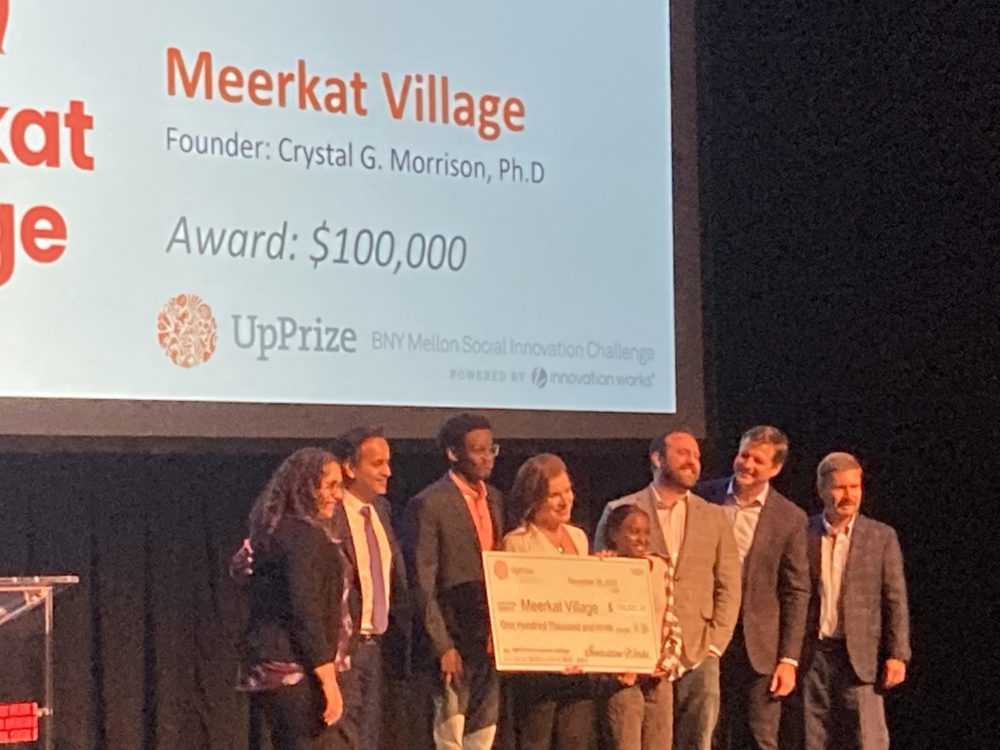Getting a startup off the ground takes funding, whether your own or someone else’s. If you’re a tech-based startup, that might mean venture capital — which, in turn, means finding an investor willing to take a chance on your great idea.
But in Pittsburgh, does every startup have the same shot at obtaining funding sources? When Technical.ly asked the founders behind our 2023 RealLIST Startups, some said that when it comes to which companies score the big bucks, the Steel City can be a little cliquey.
“Seed funding is certainly something that I think is a struggle here,” Meerkat Village founder and CEO Crystal Morrison said. “For entrepreneurs who may not be connected to [Carnegie Mellon University] or the robotics [industry] or the software space, it can be particularly difficult getting visibility and face time in this community because you don’t necessarily fit with those who know each other or within those existing programs.”
Morrison called for broader inclusivity within the local tech industry, particularly for companies like hers without CMU roots. Advanced Optronics CEO Jay Reddy agreed, as someone building a fellow seed-stage, pre-revenue company, that funding from early-stage VCs and or angel investors can be hard to come by.
Yet Reddy considers it an asset that Pittsburgh’s ecosystem includes entities such as Innovation Works that try to fill the void.
“They host accelerators and different ways to get capital into early-stage companies,” Reddy said. “You have, in the life sciences, different organizations like Life X Labs here in Pittsburgh that put money into early-stage companies. For social impact investment, charitable organizations like RK Mellon have now stepped into that role of directly funding companies.”
Because we’ve been able to identify that we as a city have been more traditionally risk averse, there’s been a conscious effort from investors locally to mitigate that.Daniela Osio Kloopify
Although the aforementioned orgs have their advantages, Heny CEO Marielle Gross pointed out that some funders can have too-tough standards for companies seeking funding. A young company just trying to get off the ground, especially, might struggle to clear the bar set by some application processes.
“It’s like they want a P&L for a pre-revenue, pre-product company [and] that’s nonsensical,” Gross said. “It doesn’t really fit.”
Fresh off securing first place and a $500,000 grant from the Richard King Mellon Foundation’s Social Impact Investment Pitch Competition, Resilient Lifescience cofounder and CEO Brad Holden noted that such competitions aren’t as inaccessible as one might believe.
“Understand that there are people behind some of the scary-looking forms and they understand the place that a lot of us are in,” Holden said. “So I wouldn’t let them asking for a P&L or audited financial statements deter you from applying to something like that, necessarily, because they do understand the stage that we’re at.”
Kloopify founder Daniela Osio said she feels heartened that Pittsburgh investors seem to be trying to take more chances on promising young startups, in a concerted effort to counter the city’s conservative investment reputation.
“Pittsburgh is traditionally more risk averse, but the one thing about Pittsburgh that has been happening is that, because we’ve been able to identify that we as a city have been more traditionally risk averse, there’s been a conscious effort from investors locally to mitigate that,” Osio said, “or to take more serious action toward walking the walk.”
_
What do you think? Is it just a CMU spinout’s world and the rest of the startups have to live in it? Are pitch competitions a more viable option than angel investors, or vice versa? Do you have any funding life hacks to share? As always, our ears and inbox are open: pittsburgh@technical.ly.







